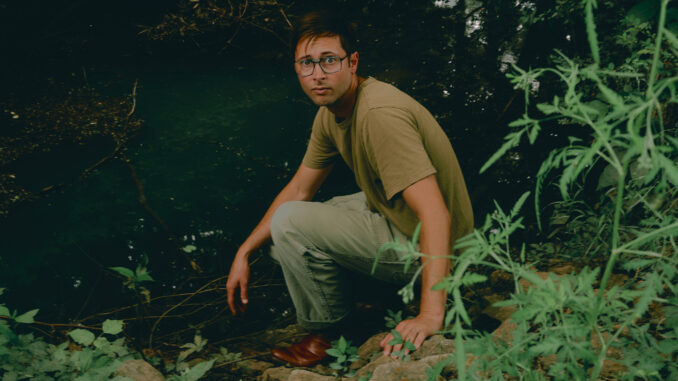
He has always felt a bit like a chameleon.
Joseph Shipp doesn’t have a routine backstory. You can trace his early musical touchstones to his father’s eclectic tastes: Neil Young, Leo Kottke, traditional Irish folk and classical were common sounds in the household. Like many young kids of his generation inspired by Kurt Cobain, he started learning guitar at age 12. And at 18, he began writing songs without the thought of music as a profession. He worked in brand design and while living in San Francisco, Shipp and his wife (also a designer) became immersed in old-timey music endemic to where he grew up in Tennessee. He picked up the fiddle and his wife the banjo, and they began performing traditional folk music as the Family Shipp.
It was a nice life. But losing his job caused Shipp to evaluate the direction of his life, and the result was moving to East Nashville where the couple settled in and started a family. Feeling somewhat out of sorts and isolated, his midlife fork in the road approaching the age of 40 was choosing to write songs again, then selecting eleven, five co-written with Andrew Sovine, to go into a self-released debut album in 2022. Sovine’s own album, “More Questions Than Answers” had made such an impact on Shipp that he also called upon him to produce his record.
“I had to let go of the way I thought I was supposed to write songs and just get present with where my intuition wanted to take me,” he explained. “If it felt right, I went with it.”
Listening to “Free, for a While,” you feel its juxtapositions, how the songs are eternal but not sentimental, perhaps a punch in the gut but from a fist clenched out of love. Critics liked what he was offering. Helen Jones, writing in Americana UK, praised his “distinctive voice that tells well-crafted stories that resonate with honesty.” It wasn’t long before the indie world took notice and more positive reviews flowed. That was when the album entered my orbit and began rotating regularly. Songs like the poetic ‘Rest Assured,’ which he describes as “an apocalyptic fever dream played by a Baptist Church band,” and the sparse ‘American Man’ are delicate folk country treats that ache with their eloquent appeal. ‘Beast in the Attic’ resonates of childhood fears for what lurks above in the night, Don’t close your eyes at night / For there’s something wild around. ‘Late October Mist’ is a true story, a lament about missing the hills of Tennessee and an invitation to remember the sanguine of our own youth. Without realizing it, these songs are infused into your core at a cellular level.
While working on ‘Free, for a While,’ Shipp also completed a book project titled “A Community in Black & White: A Most Unusual Photo Album of One Southern Community”. His grandfather had taken hundreds of photographs around Hickman County in Tennessee, many of which depicted both black and white folks during a time of racial division in the Jim Crow South.
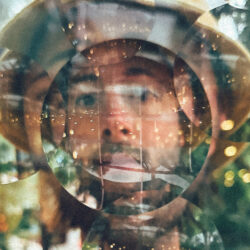
Two years later, Shipp’s talents as a songwriter and musician, photographer, historian and designer coalesced into a kinetic anchor on his recent album, “Dig Deep.” Here is where he walks the tightrope between earlier acoustic guitar-driven folk to contend with using the sonic elements of drones and loops while still holding on to the indie appeal of his first record. His innovative techniques combined with a nuanced, layered sound that dips and dives to explore the rhythms of his inner world. “I’m more apple picker than inventor,” he said. “This album was a chance for me to tune into the songs as they came through and stop worrying as much about formal structure. I wanted to get rid of all the stuff I’ve been prone to putting between me and the magic of my little everyday world”.
He writes out of his own lexicon meshed with humanity and the struggle against banality. Midlife domestication is seen through fresh eyes on ‘Strange Voodoo’. The alarm rings and a couple greet the new day with Good morning / How are you / What’s cooking / Within you? Wouldn’t any among us like to know the real answer? It’s a hopeful one in ‘Phantasy,’ as a couple goes on a hike and gets high while musing about being together in old age and enjoying senior discounts. That joy is interrupted by the wrenching devastation of a miscarriage in ‘Blanket’ .The album closes on the poignant ‘Half Moon Eyes,’ which Shipp asserts is a true story of how he met his wife.
The album appears as a snapshot of all his talents colliding into each other, exemplified in the edgy darkness of its title track. There is an earnestness in the line, Have you seen the way to me? The answer could be found by how Shipp nonchalantly concluded the Bandcamp listening party for the release of “Dig Deep,” “Have a magical day and remember to go outside.” But before you do, read the interview, accomplished by Zoom call in mid-September.
This is a big week in Nashville with AMERICANAFEST in town. Are you involved in anything there?
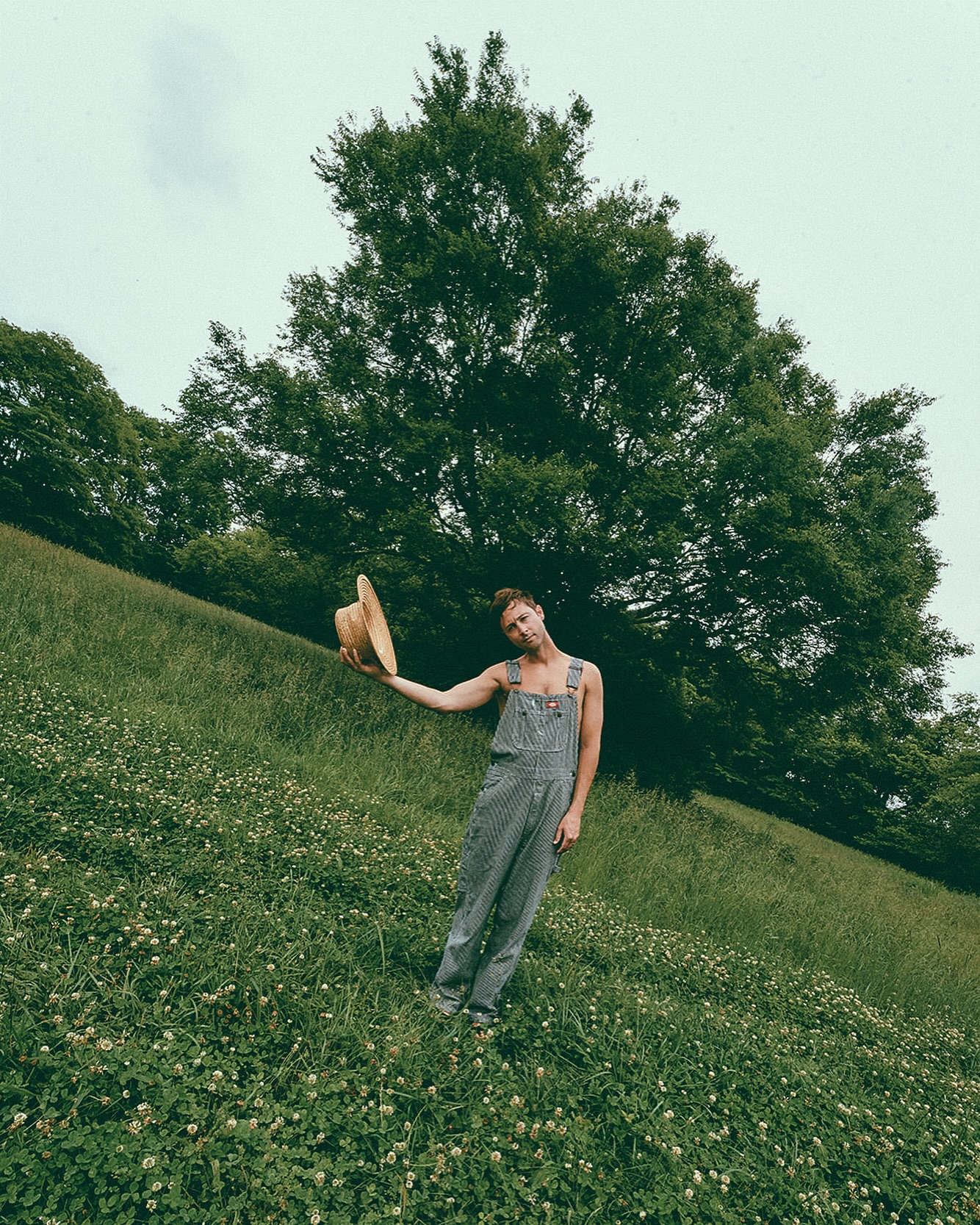
I would like to get involved, but you have to pay the fees to be able to get into anything and that’s a hard thing for me. My wife and I are throwing a festival in the neighbourhood, though. We close the street down and get some bands to play. This will be our third year doing that.
When does that happen?
Same day. My neighbour Kevin Gordon is playing. Kristin Andreassen and Critter from Punch Brothers is doing a little square dance band. It sounds like the whole Uncle Earl is playing. Abigail and Reyna will be there.
You have a new record coming out. I’m bummed you aren’t having CDs made.
I’ve been on a budget with this record. I was halfway through recording it and got laid off from a job I had for about nine years.
What kind of work were you doing?
Graphic design. That’s been my career for the past twenty years. I was involved with a magazine for a while, music and arts, fashion, very underground, DIY kind of thing. I love the medium.
Except magazines are disappearing. They will be the dinosaur of media pretty soon.
Yeah. I do like having something physical to hold in my hand, be it a CD or a magazine or a book.
You came to a music career later in life than most. Why did it take you so long to get there?
Well, I had a career. I’ve always dabbled in music and it’s been my passion ever since I was a kid. I started playing the guitar around 12 or 13 and started writing songs semi-seriously when I was 18, a freshman in college. I didn’t come from a musical background. My parents weren’t musicians, and I wasn’t as encouraged to pursue music other than just a hobby.
Art was my other passion, so I pursued a career in graphic design. But music was always a part of who I am, whether just playing with friends or for myself, making recordings and giving my friends CDs. In today’s world we have a lot more access to self-distribute. There’s pros and cons but that opened up some opportunity for me. During the pandemic is when I said, all right, if I’m going to do this, let’s do this. We had saved up for a nice vacation in 2020, and of course that didn’t happen. So, I took the money and bought some equipment and some software to start making demos. Once I had a collection of songs that I felt pretty good about, it made more sense to keep going. That’s how the first record got made. I love it. It’s the thing that I’ve always wanted to do, and I’m going to dedicate time to see if it can work. Music sets you free, at least for a while.
Very clever how you slipped in the title of your first album. But what do you mean by that?
Kind of an abstract free. There were a lot of heavy themes on that album. It was me becoming a dad later in life. I didn’t really quite recognize my home much anymore. Being isolated from the community that I had moved away from. 2016 was a very isolating time.
Where did you move to Nashville from?
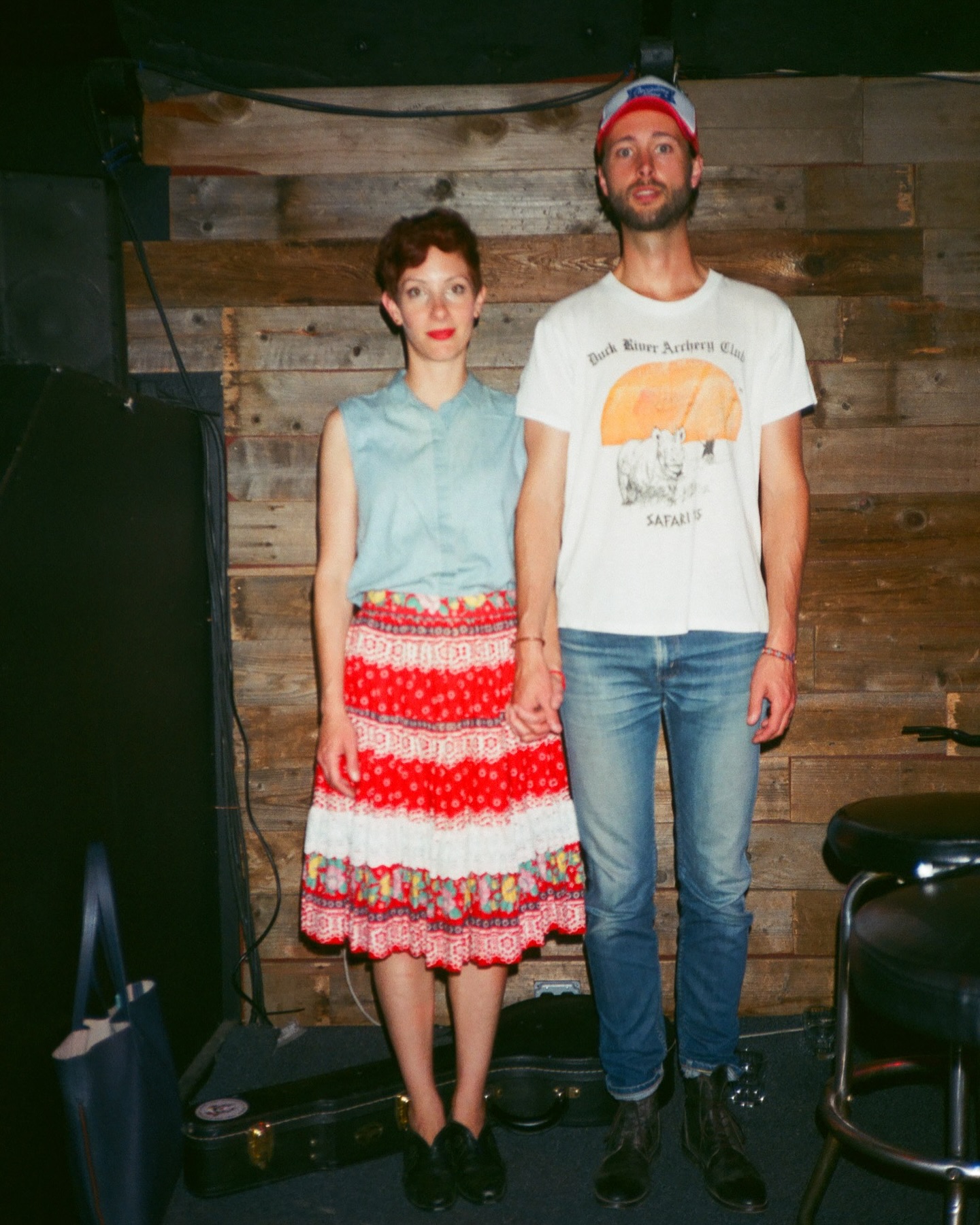
San Francisco. I met my wife there. We had some really amazing friends and a great community. She’s a banjo player and we started playing a lot of bluegrass and old time music. Then I started learning the fiddle, and we just got really into that, going to festivals and just jamming. We were playing Carter songs and old square dance tunes.
So why isn’t her name on your records?
She’s a little shy. I was itching creatively to say something with my own stuff. ‘Only the Moon,’ which was a song on the first record, was something I wrote out there. ‘Beast in the Attic’ was another one that started out as an old-timey kind of song.
What is that one about?
That’s a funny one. I had a friend who explained it probably better than I did. He said it felt like one of those Brothers Grimm nursery rhymes. And that was the idea, to write naïve, childlike lyrics. When we moved back to Nashville in 2016, the house was infested with rats. Later on, we had a brown recluse spider infestation. We were dealing with a lot of nasty critters.
My wife just got bit by a brown recluse that was in the hay barn. They are flesh-eaters. It is pretty disgusting.
That’s gnarly. Fortunately, I never got bit by one, but we eventually moved out of that house, so that became the seed for that song. I turned it into creepy things a little bit more sinister, almost like a spirit ghost entity than just rats. It felt like there was some sort of dark spirit living in there because of these things. So that was kind of the idea. We didn’t stay there very long. At the time, I was listening to a lot of Nick Cave and these ideas of darkness and southern gothic.
How do you see yourself as a musician, and how does your audience see you? In other words, are people, either in the audience or buying your music, seeing you the way think you are projecting yourself?
I’m not sure if one can ever fully know how to answer that from someone else’s point of view, but I will say that most if not all my songs are personal. They may be kind of cryptic and people will read into what they want. I try not to explain what they’re about, but I think if people listen and know me a little bit, then they can figure it out. I don’t try to be someone who I’m not. I thrive to be authentic, whatever that means, at least as much as I can be with some creative license. People were buying the first record and coming out and supporting me. It was mostly my friends, saying okay, Joseph’s doing this new thing and it’s sort of a hobby, so we’ll support him. I think with this record, though, it came to me as a surprise, and I think it may come to other people as a surprise.
It did. I mean, it strikes me as different from the first one.
On the first record, the songs were written over the course of six years. It was really more of a collection, and I was still trying to figure out what kind of writer I was. Like I was trying on Nick Cave, John Prine, Tom Petty, Gillian Welch, Dave Rawlings, writers in the Americana world whose writing is a high watermark in terms of super well-crafted, well-arranged, structured narrative songs. I’ve always loved country music and Americana, but I’ve also loved indie music and electronic music and ambient music. I have pretty eclectic tastes, so I stopped trying so hard to be this particular kind of writer, just let my own stuff come through and not judge it. The big thing was letting my brain get out of the way. If it felt good not every song had to make sense. Some of these songs, I still don’t know what they quite mean yet. Before, that made me very uncomfortable.
What connects you with Tom Petty? He’s mentioned a couple times in your media kit.
I’ve studied him and read tons of interviews, seen him multiple times fortunately before he passed. There’s something immediate about a Tom Petty song. Let’s take some of the singles. He can tell a great story in a few words. It’s got a hook to it right away, and it’s sort of that dump Boris get to the chorus thing. There’s an incredible energy. I love listening to music and driving, and Tom Petty is one of my go-to road trip artists. ‘Turning Into Someone Else,’ which is sort of the title track from the first record was like that with a big chorus. The earlier roots rock and roll is stuff I really like. There’s less of that on this new record, though.
You’re using a lot of loops and drones rather than a strict chord arrangement. Repetitive things seem to be appealing to you.
Yeah, I thought a lot about that question actually, because it is something I felt a little uncomfortable with at first. I think there’s a tendency to overcomplicate music sometimes with chords and melodic arrangements and compositions that are complex. I also grew up heavily on Bruce Springsteen. My earliest memory of music was dancing around to ‘Born in the USA’ on a record player at two years old. It’s a two-chord song, and I’ve always really liked minimalism in those terms. Also, coming from the design world, minimalism and modernism are key. When I was in high school, I started getting really into electronic music, later on connecting that with square dance music. I would joke when we were playing a square dance that this is the techno of the Appalachians, right? It’s very repetitive. You’ve got an A part, you’ve got a B part, and then repeat, and that’s it. No one’s doing leads. Modern dance music, electronic music is the same way. There’s something really calming about ambient music. I like the subtle shifts and movements that can happen over something repetitive. And it’s also connected to the spiritual musical tradition as well, thinking more eastern, even Indian drone music. Do you know the band, Six Organs of Admittance?
A little. That’s the guitarist Ben Chasny. He uses drones and chimes and odd percussive elements.
He came out of John Fahey, American primitive style steel-string guitar and Robbie Basho, another American primitive guitar player. I’m really into that stuff with the open tunings. This thread made a lot of sense when it came to my own music. The first record was more traditional, stripped-down Americana songs. I wanted to bring some of the ambient and drone influence into the new record. I bought an old Tascam four-track recorder, and it was like back growing up in the ‘90s listening to the radio and trying to capture songs on a cassette recorder.
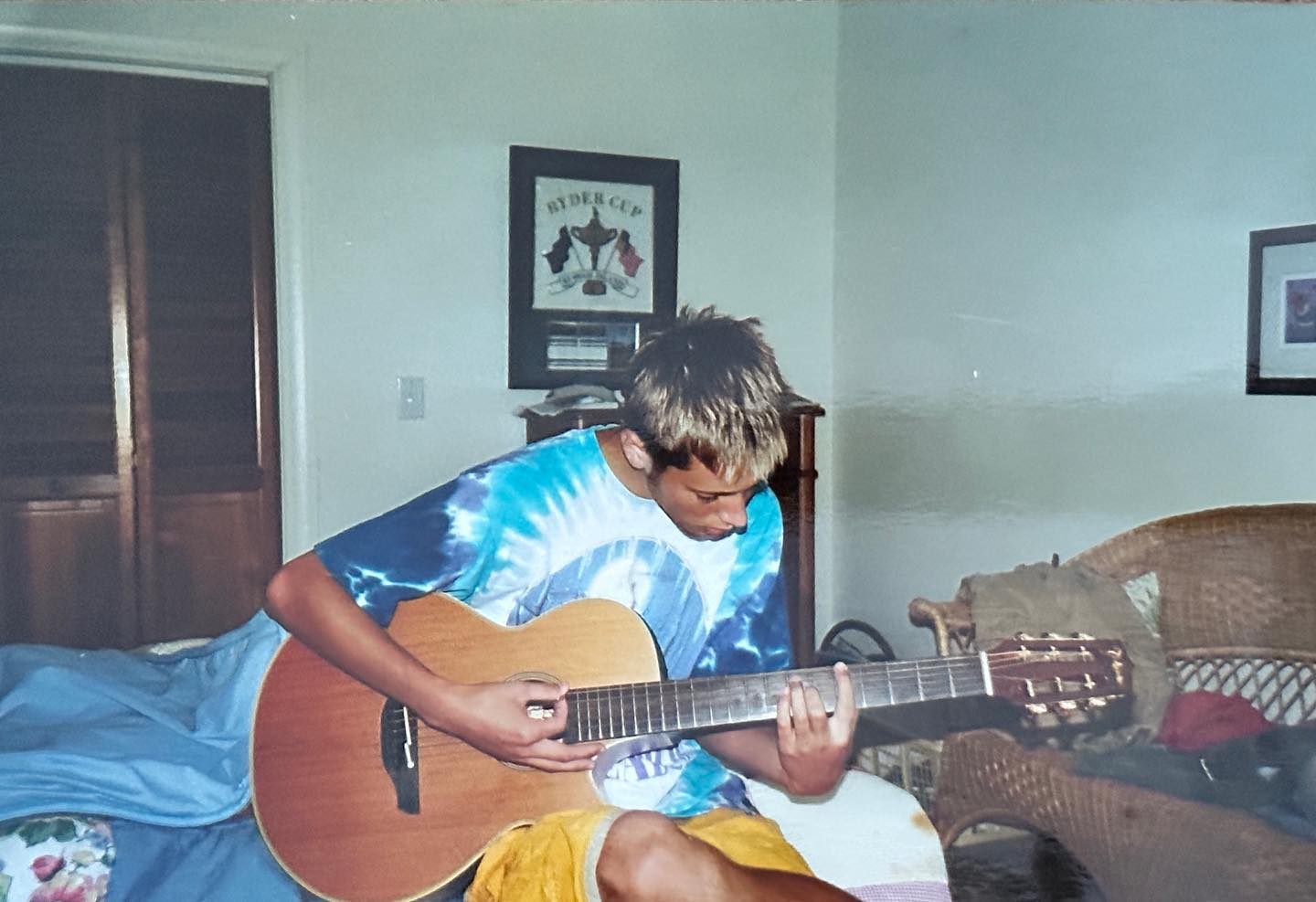
Yeah, that was a real pain.
We’re spoiled now. I picked up journaling last year, so one morning I was writing about how I missed cassette tapes. I had a bunch of old cassettes just lying around and no player, so I bought this Tascam and made all the demos on that instead of the computer. That was my goal to be more analog. Then I began making these three to five second ambient loops, and each channel would have a different thing. I could sort of play it like an instrument. When we went into the studio, my producer Andrew Goldring, has a reel-to-reel player, and we just leaned into that.
‘Strange Voodoo’ definitely has a loop. What instrument is that?
I’m doing this open tuning, fingerpicking guitar that is complex and very repetitive. But behind that was a sequencer playing essentially a melodic loop. We could filter it to sound brighter or darker, so it became the backbone, rhythmic section of that song.
There’s a lot of sustain to an open tuning, certainly a natural sustain rather than having to create it yourself. Is that one of the reasons why you like to play with open tunings?
It is one of the reasons. I’ve never been a good guitar player at all. For some reason, standard tuning doesn’t align in my brain. Even when we were playing bluegrass and jamming, I was always just the rhythm guy. So open tunings make more sense to me. Keith Richards would say the same thing. His brain works with open tunings. Someone who I was listening to was Adrianne Lenker, who also does a lot of open tunings. To get out of my own comfort zone, I use that as a tool, go into a tuning that I’ve never played before, or even just make one up, tune the guitar to something that just sounds good to my ears, then place my fingers somewhere on the neck and just play something and write something until it feels and sounds good.
That’s the way ‘Dig Deep’ was written. I just literally, string by string, finger by finger, figured out the music. Usually, I start with the lyrics. That one was completely different. I started with the music. I mean, there’s five or six guitar tunings including standard on this new record. Playing these songs live gets challenging.
That would definitely bother me. Okay. I’m in a certain key with an open tuning, but what do I do to move up an octave? Where’s the chords?
There were open tunings on the first album, too, and that was because of Dylan. I love “Blood on the Tracks,” and that whole album was done in open E and D. If he wanted to go up to E, he would just capo at the second fret. I basically just learned every song on that record, and ‘American Man’ came out of those tunings.
I took a songwriting workshop with Adrianne Lenker and she mentioned Twain, which is the solo project of Mat Davidson, someone she occasionally collaborates with. He lived in Appalachia for a while, played in a string band, so he’s coming from the roots indie world, similar to the Big Thief countrified indie stuff. She mentioned him as one of her favourite contemporary songwriters. I also got into Flights, a duo band from England who put out one of my favourite records of last year, really beautiful harmonies, an amazing guitar player playing acoustic bass. There’s another duo, Hovvdy, a Texas band with some hip-hop influence, but it’s all about the song.
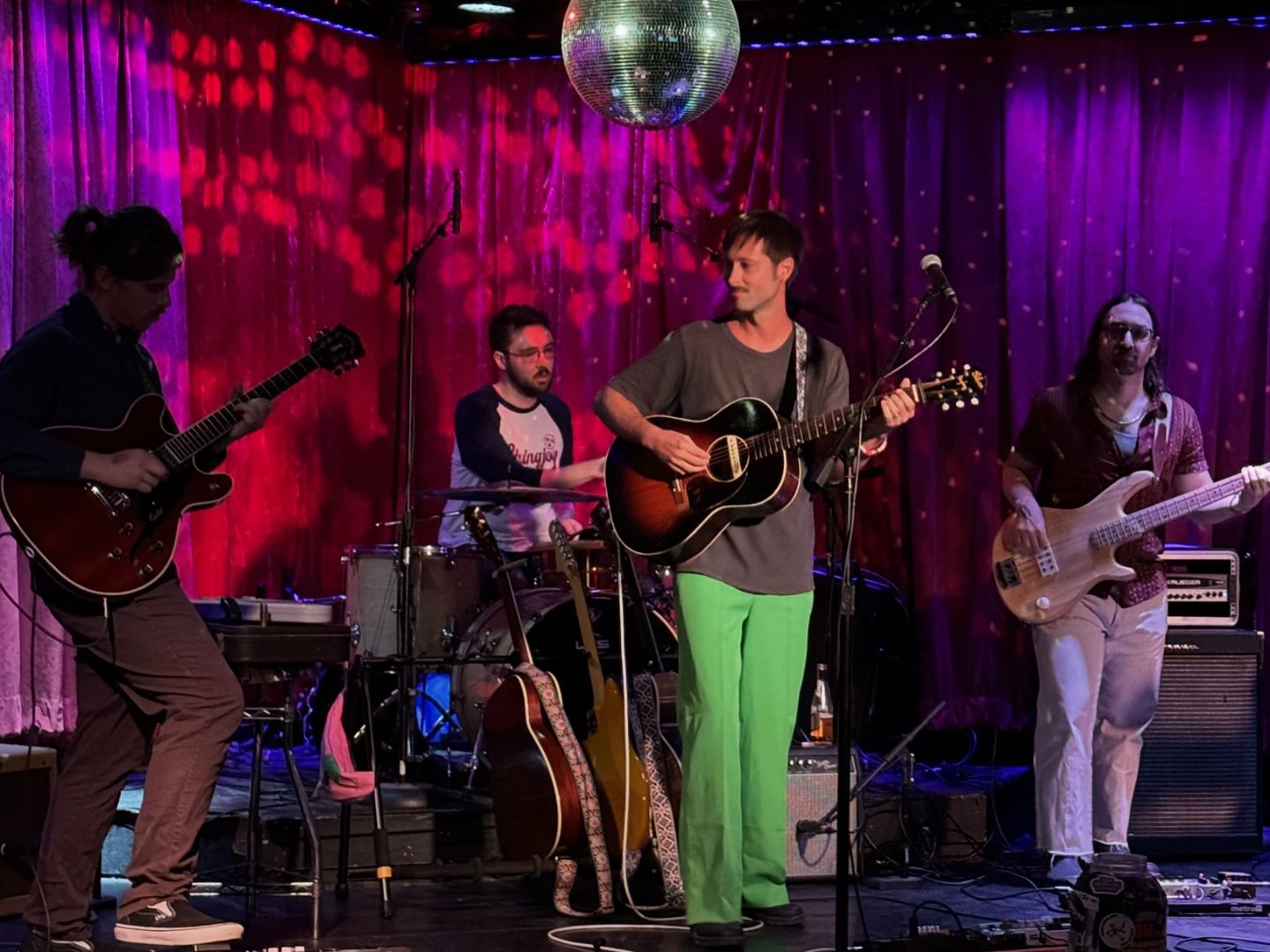
On ‘Open Up,’ one of the lines that struck me was, it’s funny how good things can seem without the truth getting in the way.
That’s the opening line. That song is about a relationship and, I mean, if you’ve been married or had a partner for a while, even a friendship that’s really close and intimate, you can get stuck sometimes. You know that it’s the elephant in the room situation where there’s a conversation that needs to happen. There’s something that is getting in the way of this relationship, and if you ignore it long enough and pretend, at some point it’s going to come to a head. That’s the idea.
Isn’t it also about finding your path a little bit, like it takes some folks longer than others to find their nature or their path? Animated bones / Heavy overtones / Brother Rabbit knows / A hole can be a home /Dig deep. Brother Rabbit, Br’er Rabbit and Tar Baby from “Song of the South.” He was a trickster and a con artist.
We have bunnies in our backyard as I’m sure a lot of people that live in Tennessee do. But to me, the bunny is, in that line, it means several things. Personally, I see a bunny as a cute creature. They’re agile, but they’re also prone to prey. We have a lot of hawks and owls in our neighbourhood, so the idea is that these animals, which are very playful and innocent, can get taken away in an instant. So the hole becomes the metaphorical hole of protection. There’s also the idea of a rabbit hole going deep on some sort of subject and how that if you stay in that too long, its protection can take you away from reality.
As the song goes, Atoms move and shake / Stars radiate / Stillness is a state / Fake it til you make it.
It’s a very personal and one of those songs that I still don’t fully know what it’s about yet. I think there’s a logic to it, but it’s someone who’s lost, who’s trying different things until something fits, hoping for a little magic to help them along the way. I think with that song and a lot of these songs, I was really trying to invoke nature and the idea of nature as a spirit. I’ve always been drawn to animism and paganism and ideas around these things are alive and have wisdom. That song is like a magic spell.
It’s interesting. You say you don’t fully understand yet it’s the title of the record.
I think the idea of digging deep on something for me, thematically, is how this record came to be. I mentioned the journaling and that was really sort of an excavation and taking inventory of myself. Many of the songs are coming from that point of view.
I’m hearing affirmations in some of your lyrics.
I have actually engaged in them though it feels a little silly. You know what I’m saying? Again, there is that fake it till you make it idea there. You tell yourself a story enough; you’ll start to believe it. And I think I’d gotten to a point where I’d realized that some of the stories I was telling myself were not benefiting me in ways that I was hoping they would.
That’s why I said fake it until you make it before. I was wondering if you were going to make that connection. Ulterior motive.
Right. Yeah, it’s all about creativity, is what I see. It’s like, well, the entire universe is about creativity, but how do you tap into that power?
Vonnegut put it as becoming unstuck in time. Speaking of tricksters, Loki was the trickster God, though neither good or bad. He’s a creator of chaos, and yet the loops and drones seem anti-chaotic, more orderly. Do you see your music as more orderly?
I see it as pretty chaotic, actually. But you’re making a lot of sense. This is helping me articulate and make sense of this even more. I feel pretty chaotic in my own emotions, a lot in my own thoughts. Writing has always been a form of working those things out. We can hide behind these characters in our writing, and I didn’t want to do that with this record. It was like, no, these songs are about me in some way or whatever. But I think it’s interesting that the connection of the drones and the looping is a way for me to provide some stability there around what’s happening internally. There is some heavy stuff, dealing with death of my father and bad relationships.
On ‘Move into the Light,’ it goes, Quieter than a meditation /wilder than a dream you’re chasing. So, the light is death and transition, the lean into the unknown winter making room for things to grow. What is going on there? What do you think happens after death?
I think we do move into the light after death. I’ve actually had a near-death experience, and I haven’t really talked about this publicly. I did talk about it to my friends, but it was something that happened to me when I was 18 in college and had this full-on, went into the tunnel of the light. It’s about that and it’s a message to myself, too, don’t dwell in the darkness too long. I think I was starting to with my first record, and I was ready to move on. That record was a lot about just really leaning into the shadow, so moving into the light is about the other side of the shadow work.
In the second verse, you say, There’s a darkness to your aura / It’s brightest on the edges of your shadow.
I saw this powerful aura reader back in San Francisco, and she was like, you’re sort of a dark soul. My wife says that I’ve got a darkness about me, and I’ve always had an affinity toward the darkness. My first favourite song was ‘House of the Rising Sun,’ the Animals version. I was five or six years old, but it pulled me in immediately and held me. The reader said my aura is very large and dark, almost like black, but on the edge is neon green. She helped me to reframe that the darkness was not something to repel, instead it was through the darkness that I will find my gift and purpose in life. The darkness is rich, fertile soil for planting seeds. That was the neon green.
Anyway, it was a powerful shift in the way I started thinking. And from that moment, it was like, okay, let’s go there. Let’s explore some of these dark ideas and themes. But now I’m ready to move on from that. I’m a sun worshiper, too. I get a lot of healing from that. I’ve also become a morning person when I used to be a night person. I like to wake up early and go outside to sit in the sun and have my coffee. So, the idea of that song was realizing that we all are light beings, and if it wasn’t for the sun, then none of this would exist.
You can feel so much more energy from being in sunlight. Makes you feel totally different.
The line quieter than a meditation, I was thinking about the sun’s rays. Meditation can be very loud and have these auditory rings going up your spine. The light can be quiet, but it’s also wild and chaotic.
Do you do breathing exercises before you meditate?
Breathing definitely helped battle depression and anxiety. I did a 10-day silent Vipassana meditation back in 2015 before I got married. It was extremely powerful.
You talk about the darkness, and I keep going back to Leonard Cohen. You want it darker? Do you have a particular process? You said you start with a lyric typically?
Usually, words will come first. I try to keep a little notebook of, I call them lyric scraps or seeds. Something will come to me in the shower or doing the dishes. It could be walking down the street or in a restaurant. I hear somebody say something, and that could be a song. I’m the kind of writer that doesn’t write all the time. It’s usually in batches and kind of comes and goes. The chorus is what comes to me first.
What is your favourite part of the whole music process: writing, playing, producing a record, recording it, playing out live?
All of that. I like writing the most. To me, it’s the closest thing I can think of to magic, and it’s why I keep doing it. Everything else supports that. When I’m writing a song, it’s when I feel the most creative and in tune with myself. It’s the closest you can come to God or spirit or whatever you want to call it. It can be frustrating, but finishing that song is the best feeling.
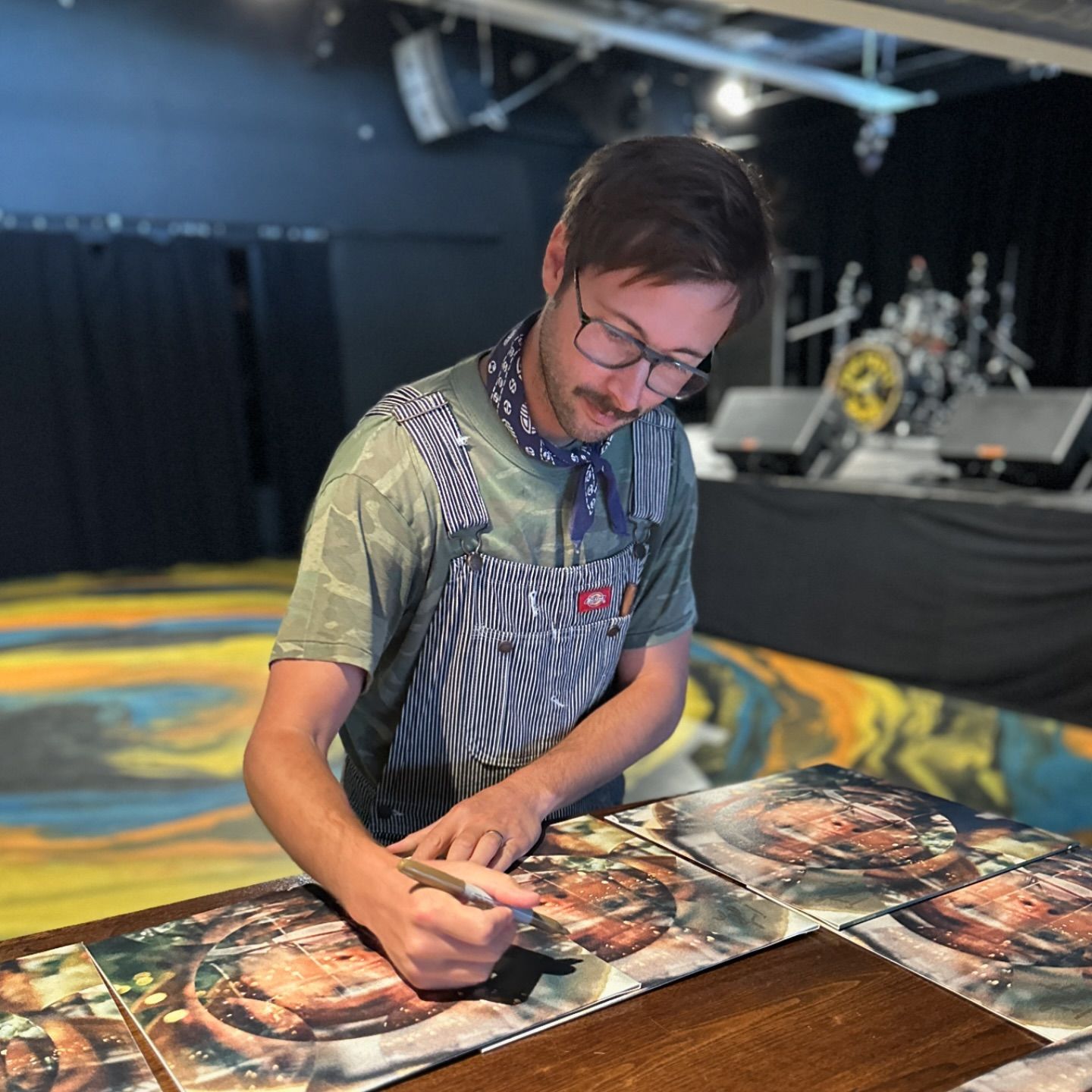
So outside of people buying or streaming your music, how can you tell if you’re making a connection to people?
You’re always going to have support from friends and family, but I think there are songs that extend beyond that network. People that hear them and take the time to reach out and say, this means something to me, I love that part. That means more than a million Spotify streams.
It’s funny that what connects with people does not always connect with me. ‘Deep’ is a song that was very different from other songs that I’d written. I posted a video online of me playing it, and immediately people just started commenting. People really responded.
What other songs of yours do people enjoy the most?
I just played a show. People really loved ‘Open Up to Me.’ You could see them moving and dancing along. ‘American Man’ and ‘DOD’ from the first record really stand out.
What do you think about ‘DOD.’ That surprised me.
After a show, someone said to me that it’s a heavy metal folk song, and that was kind of my intention. People seem to like the dynamics of that song. It’s got a drop beat in the riff.
There’s a line in ‘Strange Voodoo’ that stood out – The rhythm /The routine / A schism /To relieve.
Yeah, the routine. I’m a father of two young boys. I live a pretty normal vanilla life for the most part. And having kids, you’re on a strict schedule pretty much every day. So, my days have become very structured. Before kids, my wife and I were very spontaneous.
If you wanted to do something, you just went ahead.
My oldest is six but we’re still very much in that hyper-structured life. There was a song I started writing, and one of the lines was, routines, they’re killing me. It didn’t resonate because I realized the routines were helping me. There’s a rhythm to the routine. This song was about the idea of domestic life, where the schism to relieve is like the spontaneous moments that happen. It could be deciding to take a road trip to the river, and something very magical might happen. Simple as that.
The idea for ‘Strange Voodoo’ is tied to this rhythm and structure that we create because of our modern lives. Then there’s the idea of God’s plan. I’m not a religious person, but I’m pretty spiritual. I’m sure you’re picking up on that. But my thing lately is I need to feed into the rhythm of life, not what I want to force it into. What’s that rhythm and how can I get on that flow down the river of life?


